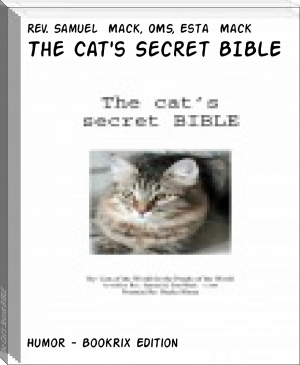Not George Washington — an Autobiographical Novel, Westbrook and Wodehouse [readera ebook reader .TXT] 📗

- Author: Westbrook and Wodehouse
Book online «Not George Washington — an Autobiographical Novel, Westbrook and Wodehouse [readera ebook reader .TXT] 📗». Author Westbrook and Wodehouse
"Rummy, very rummy," I exclaimed. The poem was dated yesterday. Had Mr. Cloyster, then, continued to work his system with Thomas Blake to the exclusion of the Reverend and myself?
Still worrying over the thing, I turned over the pages of the paper until I chanced to see the following paragraph:
LITERARY GOSSIP Few will be surprised to learn that the Rev. John Hatton intends to publish another novel in the immediate future. Mr. Hatton's first book, When It Was Lurid, created little less than a furore. The work on which he is now engaged, which will bear the title of The Browns of Brixton, is a tender sketch of English domesticity. This new vein of Mr. Hatton's will, doubtless, be distinguished by the naturalness of dialogue and sanity of characterisation of his first novel. Messrs. Prodder and Way are to publish it in the autumn."He's running the Reverend again, is he?" said I to myself. "And I'm the only one left out. It's a bit thick."
That night I wrote to Blake and to the Reverend asking whether they had been taken on afresh, and if so, couldn't I get a look in, as things were pretty serious.
The Reverend's reply arrived first:
THE TEMPLE, June 7th. Dear Price,— As you have seen, I am hard at work at my new novel. The leisure of a novelist is so scanty that I know you'll forgive my writing only a line. I am in no way associated with James Orlebar Cloyster, nor do I wish to be. Rather I would forget his very existence. You are aware of the interests which I have at heart: social reform, the education of the submerged, the physical needs of the young—there is no necessity for me to enumerate my ideals further. To get quick returns from philanthropy, to put remedial organisation into speedy working order wants capital. Cloyster's system was one way of obtaining some of it, but when that failed I had to look out for another. I'm glad I helped in the system, for it made me realise how large an income a novelist can obtain. I'm glad it failed because its failure suggested that I should try to get for myself those vast sums which I had been getting for the selfish purse of an already wealthy man. Unconsciously, he has played into my hands. I read his books before I signed them, and I find that I have thoroughly absorbed those tricks of his, of style and construction, which opened the public's coffers to him. The Browns of Brixton will eclipse anything that Cloyster has previously done, for this reason, that it will out-Cloyster Cloyster. It is Cloyster with improvements. In thus abducting his novel-reading public I shall feel no compunction. His serious verse and his society dialogues bring him in so much that he cannot be in danger of financial embarrassment. Yours sincerely, John Hatton.Now this letter set my brain buzzing like the engine of a stationary Vanguard. I, too, had been in the habit of reading Mr. Cloyster's dialogues before I signed and sent them off. I had often thought to myself, also, that they couldn't take much writing, that it was all a knack; and the more I read of them the more transparent the knack appeared to me to be. Just for a lark, I sat down that very evening and had a go at one. Taking the Park for my scene, I made two or three theatrical celebrities whose names I had seen in the newspapers talk about a horse race. At least, one talked about a horse race, and the others thought she was gassing about a new musical comedy, the name of the play being the same as the name of the horse, "The Oriental Belle." A very amusing muddle, with lots of doubles entendres, and heaps of adverbial explanation in small print. Such as:
Miss Adeline Genie (with the faint, incipient blush which Mrs. Adair uses to test her Rouge Imperial).That sort of thing.
I had it typed, and I said, "Price, my boy, there's more Mr. Cloyster in this than ever Mr. Cloyster could have put into it." And the editor of the Strawberry Leaf printed it next issue as a matter of course. I say, "as a matter of course" with intention, because the fellows at the "Moon" took it as a matter of course, too. You see, when it first appeared, I left the copy about the desk in the New Business Room, hoping Tommy Milner or some of them would rush up and congratulate me. But they didn't. They simply said, "Don't litter the place up, old man. Keep your papers, if you must bring 'em here, in your locker downstairs." One of them did say, I fancy, something about its "not being quite up to my usual." They didn't know it was my maiden effort at original composition, and I couldn't tell them. It was galling, you'll admit.
However, I quickly forgot my own troubles in wondering what Mr. Cloyster was doing. No editor, I foresaw, would accept his society stuff as long as mine was in the market. They wouldn't pay for Cloyster whilst they were offered the refusal of super-Cloyster. Wasn't likely. You must understand I wasn't over-easy in my conscience about the affair. I had, in a manner of speaking, pinched Mr. Cloyster's job. But then, I argued to myself, he was earning quite as much as was good for any one man by his serious verse.
And at that very minute our slavey, little Ethelbertina, knocked at my bedroom door and gave me a postcard. It was addressed to me in thick, straggly writing, and was so covered with thumb-marks that a Bertillon expert would have gone straight off his nut at the sight of it. "My usbend," began the postcard, "as received yourn. E as no truk wif the other man E is a pots imself an e can do a job of potry as orfen as e 'as a mine to your obegent servent Ada Blake. P.S. me an is ole ant do is writin up for im."
So then I saw how that "Cry" thing in the St. Stephen's had come there.
You heard me give my opinion about telling Norah my past life. Well, you'll agree with me now that there's practically nothing to tell her.
There is, of course, little Miss Richards, the waitress in the smoking-room of the Piccadilly Cabin. Her, I mean, with the fuzzy golden hair done low. You've often exchanged "Good evening" with her, I'm sure. Her hair's done low: she used to make rather a point of telling me that. Why, I don't know, especially as it was always tidy and well off her shoulders.
And then there was the haughty lady who sold programmes in the Haymarket Amphitheatre—but she's got the sack, so Cookson informs me.
Therefore, as I shall tell Norah plainly that I disapprove of the Cabin, the past can hatch no egg of discord in the shape of the Cast-Off Glove.
The only thing that I can think of as needing suppression is the part I played in Mr. Cloyster's system.
There's no doubt that the Reverend, Blake and I have, between us, put a fairly considerable spoke in Mr. Cloyster's literary wheel. But what am I to do? To begin with, it's no use my telling Norah about the affair, because it would do her no good, and might tend possibly to lessen her valuation of my capabilities. At present, my dialogues dazzle her; and once your fiancie is dazzled the basis of matrimonial happiness is assured. Again, looking at it





Comments (0)